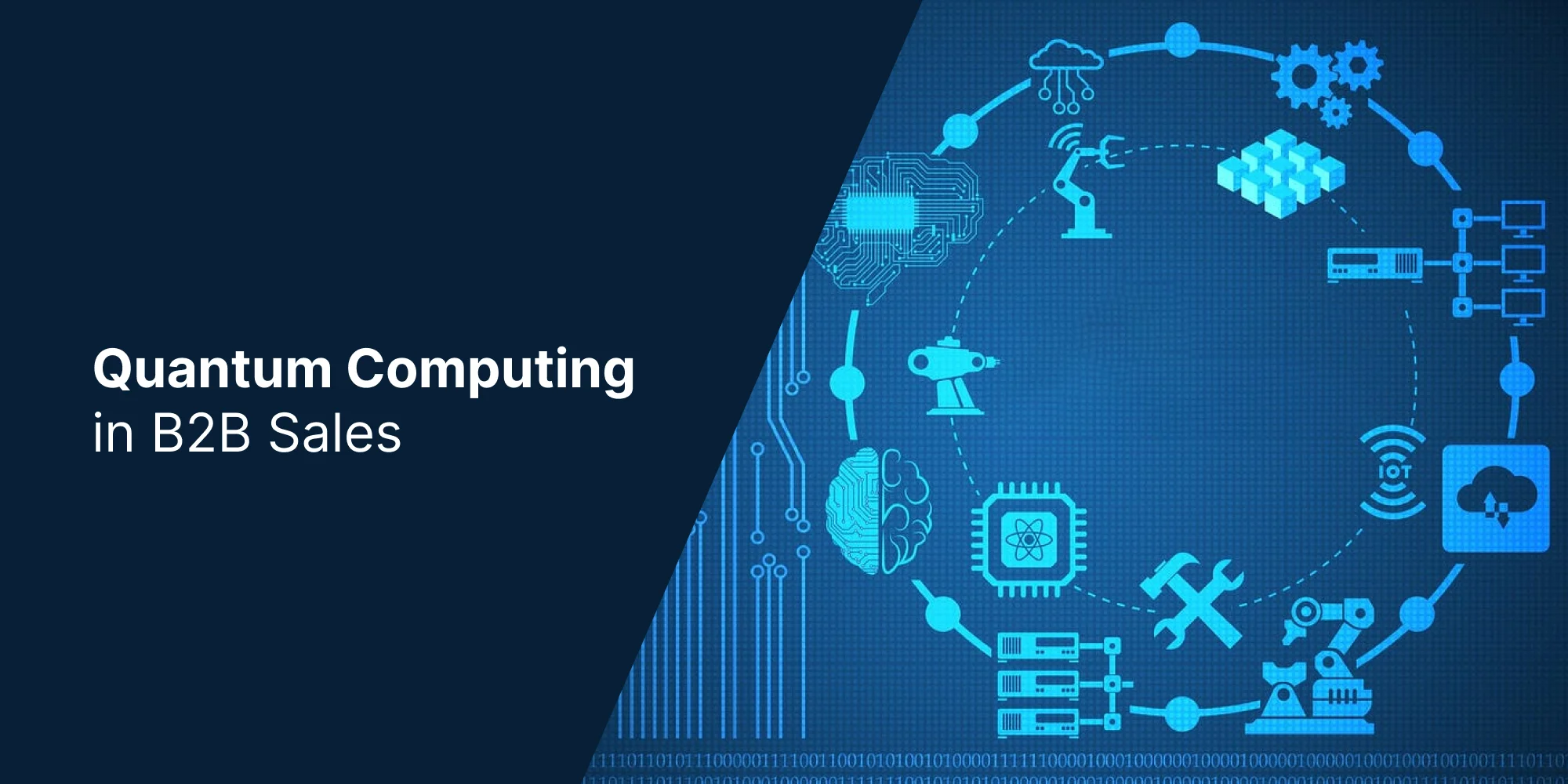Necessary Always Active
Necessary cookies are required to enable the basic features of this site, such as providing secure log-in or adjusting your consent preferences. These cookies do not store any personally identifiable data.
|
||||||
|
||||||
|
||||||
|

B2B sales are about to experience a new era with the introduction of quantum computing. Businesses now generate more data than ever before, and it has become increasingly difficult for traditional analysis tools to keep up with the larger volume. Sales teams have a wealth of information, but often lack clear insights that can help them close deals more efficiently.
Traditional data analysis and predictive models have become limited as B2B sales are growing to be more complex and data-driven. What might have worked decades ago won’t work today when you’re dealing with massive datasets, intricate customer behaviors, and a market that’s constantly changing
Quantum computing is a new kind of computer technology that uses the special rules of quantum mechanics to solve problems that today’s most powerful computers can’t handle. To understand how quantum computing will revolutionize B2B sales, you first need to grasp what makes it different from the computers we use today.
Traditional computers process information using bits that exist in one of two states, for example, 0 or 1. However, quantum computers use quantum bits or “qubits” that can exist in multiple states at the same time, 0 and 1, through a principle called superposition. Think of it like this: a regular computer will flip a coin and see either heads or tails, but a quantum computer can consider both possibilities simultaneously.

When qubits are interconnected so that their states become linked, no matter how far apart they are, this is called entanglement. These unique properties or features enable quantum computers to process large amounts of data and solve complex problems exponentially faster than classical computers.
There are two fundamental quantum algorithms that show just how powerful this technology can be. Grover’s algorithm can search massive, unsorted databases much faster than standard methods, and Shor’s algorithm can break down large numbers very efficiently. In a B2B sales context, this could mean analyzing customer data, market trends, and pricing models at speeds that traditional systems cannot match.
Before we discuss how quantum can impact B2B sales, let’s first examine the current state of B2B sales and identify the areas that require improvement.
Many B2B companies continue to utilize traditional tools, such as CRM systems, machine learning algorithms, and data mining software, to manage their sales processes. These tools have played a long game and been helpful, but they’re reaching their limits. Processing times are slow, insights are often limited to surface-level patterns, and scaling them for larger amounts of data is costly and complex.
Modern B2B sales teams have more data than before, but they still struggle to use it effectively. Sales representatives are overwhelmed with dashboards, reports, and analytics, yet they miss opportunities because they can’t process information fast enough. Lead qualification remains inconsistent, and pricing decisions are often based on educated guesses rather than proper data-driven choices.
Here are some ways quantum computing can solve today’s B2B sales challenges and create new ways of working with data.

Personalization is a top priority in modern B2B sales, and quantum computing could make it far more advanced than today’s methods.
Because quantum computing can understand and predict customer needs on a large scale, every interaction could be precisely tailored. By analyzing behavioral patterns, purchase history, communication preferences, and market positioning all at once, quantum systems can help sales teams create strategies that feel personal for each prospect, even when they’re managing thousands of potential customers.
Traditional lead scoring often falls short because the number or set of factors it can consider is limited. Quantum computing, however, will evaluate leads with far greater precision by using advanced clustering and segmentation techniques. It will identify high-value prospects by looking at not just obvious criteria like company size or budget, but through complex pattern recognition that picks up subtle indicators of purchase readiness that people and traditional computers can’t detect.
While quantum computing offers big data potential, it also has challenges that businesses need to consider.
Quantum computing is set to reshape B2B sales by enabling faster analysis, smarter predictions, and various optimization strategies that weren’t possible before. Hyper-personalized sales, better lead qualification, and dynamic pricing are some of the key advantages of quantum computing in B2B sales.
The timeline for widespread adoption is not so far away. It is therefore advisable for businesses to jump on the trend early and explore how cloud-based quantum services can fit into their sales process and start educating their team about this technology.
Widespread adoption may come sooner than many expect. As quantum systems mature, we’ll see automated negotiations, smarter pricing engines, and the rise of new sales strategies. Industries like logistics, finance, and SaaS will likely feel the impact first because they handle massive amounts of data that quantum computing can analyze faster, optimize more efficiently, and use to deliver smarter predictions and personalized solutions.
Sign up to receive our newsletter featuring the latest tech trends, in-depth articles, and exclusive insights. Stay ahead of the curve!